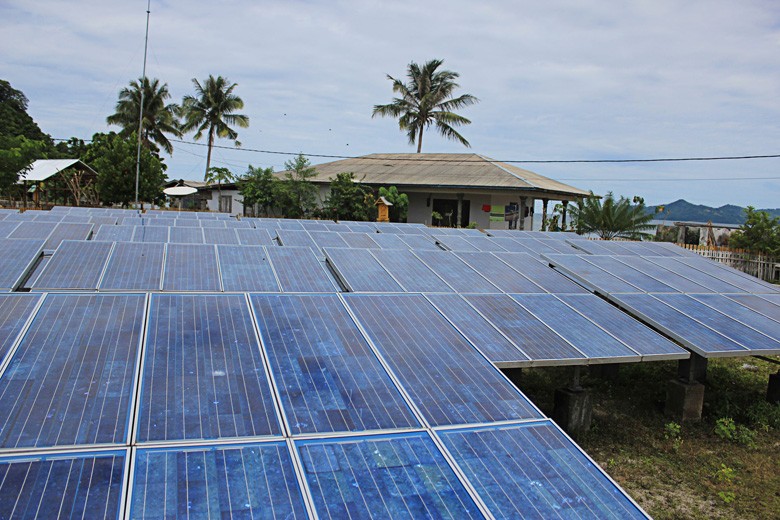Popular Reads
Top Results
Can't find what you're looking for?
View all search resultsPopular Reads
Top Results
Can't find what you're looking for?
View all search resultsIndonesia can embrace clean energy amid cheaper renewables, says UK climate envoy
Change text size
Gift Premium Articles
to Anyone
 Solar panels are in operation in a residential area on Ponelo Island, North Gorontalo. A solar power plant (PLTS) with a capacity of a 2 megawatt-peak (MWp) has begun operations in East Sumalata district, North Gorontalo. It is the biggest solar power facility in Sulawesi. (thejakartapost.com/Syamsul Huda M.Suhari)
Solar panels are in operation in a residential area on Ponelo Island, North Gorontalo. A solar power plant (PLTS) with a capacity of a 2 megawatt-peak (MWp) has begun operations in East Sumalata district, North Gorontalo. It is the biggest solar power facility in Sulawesi. (thejakartapost.com/Syamsul Huda M.Suhari)
T
o meet its electricity target, Indonesia should be able to tap into clean and renewable energy, which potentially is abundant all across the archipelagic nation, says United Kingdom special representative for climate change David King.
Unlike in the past decade, he says, wind and solar technologies are now far cheaper and largely available as clean energy, making the sector globally seen as a coveted business.
“Climate change has also brought opportunity. The biggest current market in the world is clean energy. Solar and wind [power] are already competitive and commercial,” he said on Monday during a press briefing at the British Embassy.
King, who was a former UK chief scientific advisor, said it would be cheaper for Indonesia to have wind turbines and solar panels for every island than having to link large power grids to remote areas.
Targeting to generate 35,000 megawatts (MW) of power, the government has said that it will continue its plan to develop more coal-fired power plants.
National Development Planning Minister Bambang Brodjonegoro said earlier that the goal to lower coal’s share of the energy mix was not about quitting on coal, but about increasing efforts to establish renewable sources.
In the face of climate threats, abundant government subsidies in developed nations during the past decade have brought down prices of wind and solar energy technologies worldwide.
As in other developing economies, Indonesia has yet to catch up amid regulatory issues and abundant coal supplies to support its power plants.









